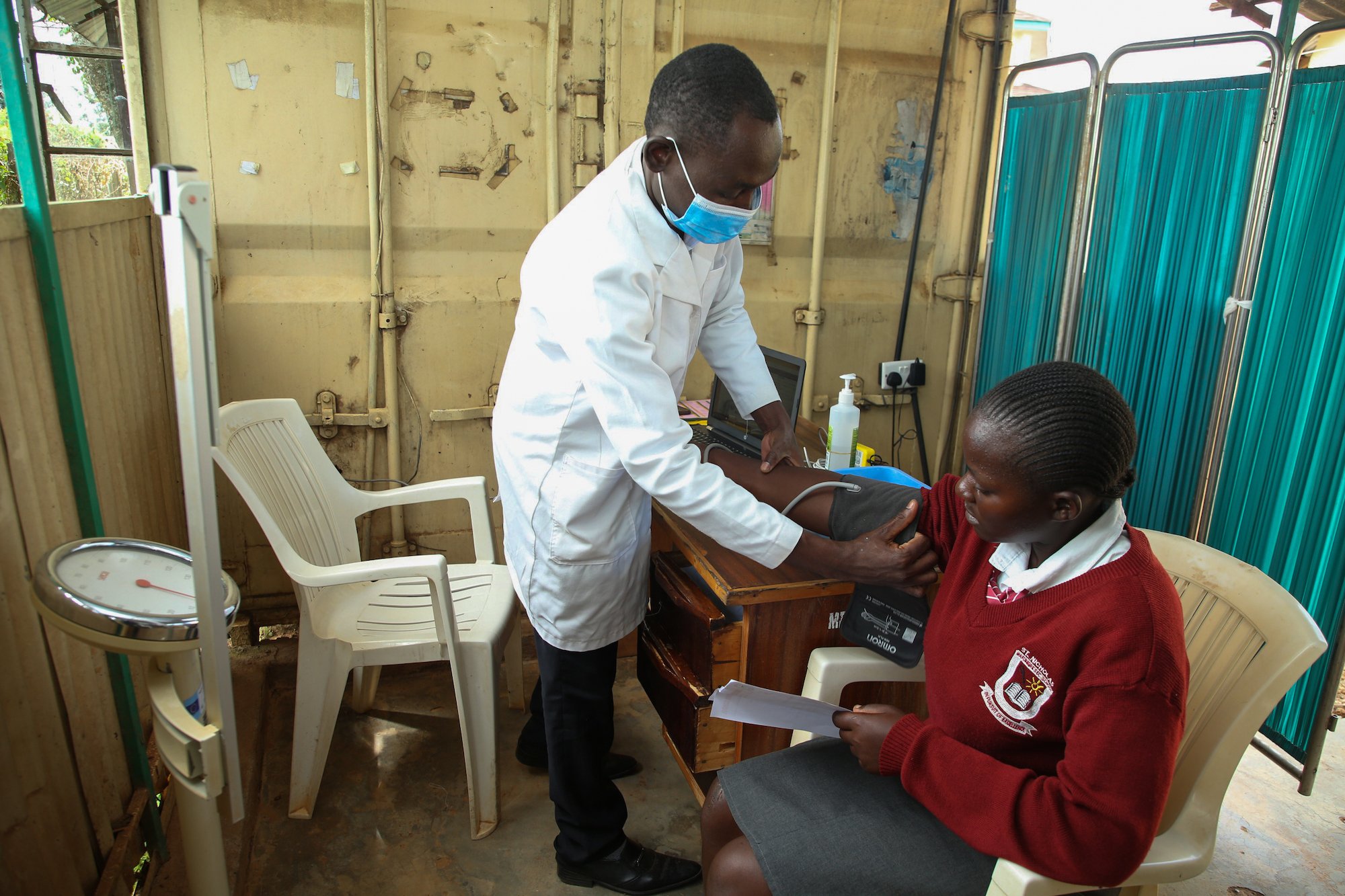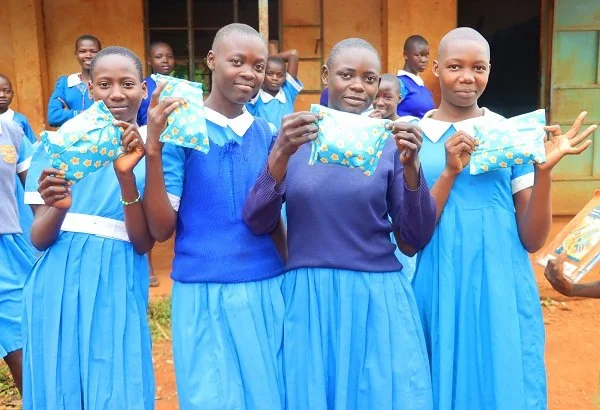
HOSPITAL
Matibabu Hospital is our flagship service to the community.
It is a fully operational hospital with both inpatient and outpatient care run 24 hours within the rural community we serve. The hospital is accredited by the government of Kenya.
Hospital – Ukwala
Outpatient Clinic – Ugunja Town
Pharmacies – Ugunja Town and Ukwala
3
average number of daily maternal deliveries at the hospital
76
number of beds available for patient admission at the Matibabu Hospital
257
average number of patients admitted monthly
38,993
average number of patients treated annually
SERVICES
Matibabu Hospital runs several departments in its operations:
OUTPATIENT
INPATIENT
OPTICAL
IMAGING AND RADIOLOGY
DENTAL
PHARMACY
SURGERY
LABORATORY
COMPREHENSIVE CARE
MATERNAL CHILD HEALTH
PROGRAMS
Through our comprehensive care department, the hospital offers several community centred programs.
Boda Girls Project
Boda Girls aims to improve awareness and access to healthcare, education, and self-employment for girls and women in our community by providing training and boda boda's to women to create businesses. Boda Girls will educate on health issues, give free rides to the hospital for all women and girls, and provide health and self-esteem education and menstrual supplies to girls at schools and in the community.
Community-Based Rehabilitation (CBR)
At Matibabu Hospital we are strong believers in community health for sustained healthcare for all. Our community-based rehabilitation program is dedicated to reaching those in the community unable to physically visit our facilities.
We focus our energies on supporting people with disabilities covering the Ugenga and Ugunja sub-counties in Siaya County, Western Kenya. We serve 200 members of our community living with special needs varying from mobility, convulsive and developmental disorders.
Our dedicated team of specialists conduct home visits, diagnose, prescribe medication and treatments conduct treatments such as physiotherapy and where required prescribe corrective surgery.
50
people received mobility devices
100
people received continuous medication
200
people living with disabilities supported regularly
The program is driven by four pillars:
Health: We reach those in need with medication, provide mobility devices, conduct physiotherapy and facilitate surgery for those who require it.
Education: We enroll children in formal schools to train in vocational skills to build economic independence.
Social inclusion: We train our clients on their rights as people living with disability and organize and run support groups and sports to keep them engaged and integrated into society.
Livelihoods: Encourage and support clients to establish self-help groups to build economic independence.
Sexual and Reproductive Health
In collaboration with the Days for Girls Foundation, the Matibabu Hospital offers sexual and reproductive health care and information to adolescent girls in the Ugunja sub-county.
10 schools received sexual and reproductive health education
150 boys received sexual and reproductive health education
360 girls received sexual and reproductive health education
The program conducts:
Peer education, which bolsters the peer educators’ program in schools to ensure sustained discussion and information sharing on reproductive health;
Distribution of sanitary pads and contraceptives; and
Sexual and reproductive health education on menstrual hygiene, contraception, and reproductive rights.
Sickle Cell Disease Program
Sickle-cell disease (SCD) is the most widespread genetic disease in Africa, which affects haemoglobin, resulting in very painful, acute attacks and potentially fatal complications, especially in children. The condition limits the life expectancy of those living with the condition. In Africa, statistically, half of the children with the condition die before their fifth birthday.
To remedy this under-diagnosed condition, Matibabu Hospital provides subsidized medication to those living with the condition. This is thanks to a partnership with Swiss pharmaceutical company, NOVARTIS.
We run an outpatient clinic for those living with the condition and community support groups to educate them to ensure lives are prolonged allowing children to live a full life.
Cervical Cancer Prevention
Matibabu Hospital is a champion of women’s reproductive health, and we believe we can live in a world free of all cancer, particularly cervical cancer.
On 17 December 2021 in collaboration with the Lake Region Economic Bloc, the Office of the First Lady of Kenya, Tiba Foundation, Matibabu Foundation, our parent organization, distributed 25,000 scrubs donated by FIGS to healthcare workers our ambassadors of cervical cancer prevention.
The project will conduct free cervical cancer screening, cervical cancer treatment and HPV vaccination. In collaboration with ZanaAfrica and Kenya’s Ministry of Health, Matibabu Foundation will conduct outreach programs across the country screening women for cervical cancer, providing health education and assessing the cultural barriers barring women from accessing healthcare services.
This is a huge step towards reducing the cases of cervical cancer in the country. We are always seeking more partners and collaborators. If you are interested in partnering with us on this initiative, please contact us at info@matibabukenya.org.
Medical Camps
To realise universal healthcare in rural communities, access is the first step to achieving this goal. Access in rural communities means geographic access. But due to the expanse of rural communities’ physical access to health facilities is difficult and at times is an arduous and expensive journey to health facilities.
To mitigate this, Matibabu Hospital brings healthcare to the community in annual medical camps. In partnership with Tiba Foundation, Fred Ogola Foundation and volunteer doctors from the USA rural communities across Ugunja and Ukwala sub-counties of Siaya County in Western Kenya get access to world-class medical assessment and surgical referrals and surgery. More than 10,000 people have been reached in eight annual camps conducted.






